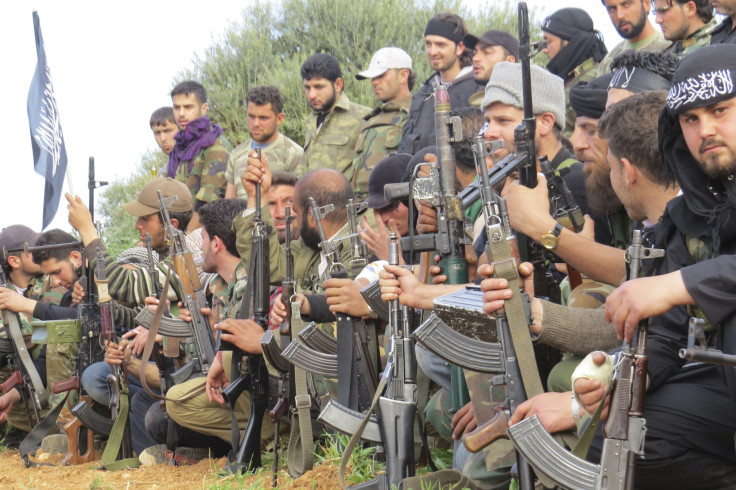What’s Going On With Al-Qaeda In Syria? A Busy Week For Jabhat Al-Nusra And The Free Syrian Army

It is no secret that jihadist groups have played a significant role in the Syrian uprising, but a series of events this week have called even more attention to the role al-Qaeda-linked militants are playing in the bloody and increasingly sectarian conflict.
Taken at face value, none of the news is likely to change things on the ground in Syria. But it does highlight an increasingly dire situation for the Syrian rebels, who have been fighting for more than two years to overthrow the regime of President Bashar al-Assad.
On Sunday, al-Qaeda leader Ayman al-Zawahiri, Osama bin Laden's right hand and successor, called for the creation of a Sunni Islamic state in Syria. He spoke directly to Syria’s rebel fighters in his first video address since November.
"Let your fight be in the name of Allah and with the aim of establishing Allah's Sharia [Islamic law] as the ruling system,” he said, according to Middle East Online. “Do all that you can so that your holy war yields a jihadist Islamic state.”
On Tuesday, the al-Qaeda group in Iraq, or AQI, asserted its connection to Jabhat al-Nusra, a jihadist militant organization that has been fighting alongside rebels in Syria. The announcement was significant, but not surprising -- analysts and officials in Syria and abroad have been fairly certain about this connection for many months.
Immediately afterward, a spokesman for the Free Syrian Army, the principal rebel group fighting to overthrow Assad, asserted that it was not ideologically aligned with Jabhat al-Nusra.
“We don't support the ideology of al-Nusra,” Louay Muqdad told Agence France-Presse. "There has never been and there will never be a decision at the command level to coordinate with al-Nusra.”
Finally, on Wednesday, Jabhat al-Nusra spokesman Abu Mohammed al-Jawlani pledged the group’s allegiance to Zawahiri. Jawlani did not confirm the organization’s allegiance to AQI specifically, and he added that “al-Nusra Front's behavior will remain faithful to the image you have come to know, and that our allegiance will not affect our politics in any way,” according to AFP.
That’s four news nuggets in as many days: three confirming the link between al-Qaeda and jihadists in Syria, and one showcasing rebel leaders' attempts to distance the FSA from terrorist groups.
For the secular Syrian rebels who began with peaceful protests in March of 2011, the establishment of a fair and transparent democracy has always been the ultimate goal. But 25 months and more than 70,000 deaths later, opposition forces find themselves more and more dependent on the al-Qaeda-linked jihadists who are often their brothers-in-arms.
After years of maintaining a military partnership with Russia, Assad forces were heavily armed to begin with. Help from Iran and Lebanon’s Hezbollah have also aided the regime in keeping its weaponry edge, while Russia and China have tripped up diplomatic efforts to put more pressure on Damascus. The rebels’ arms are relatively light. Weapons shipments from allies in the Gulf have helped, but the regime’s military capabilities -- especially its air power -- still confer an advantage to Assad and his loyalists.
Jabhat al-Nusra’s presence both helps and hurts the rebellion. The al-Qaeda linked militants bring international connections, superior arms and years of fighting experience -- but they also deter Western assistance. The U.S. administration, for one, has pointed to the jihadists as the primary argument against supplying lethal aid to the rebellion.
In short, the FSA is in a bind. It isn't new, but it is increasingly serious.
The Islamist element of the rebellion isn’t confined to Jabhat al-Nusra. In this majority-Sunni Muslim nation, many Syrian rebels call for Shariah as the basis of a post-Assad government. Secularists and religious minorities will disagree, and violent clashes may very well continue even after the ouster of Assad. Al-Qaeda’s current foothold can only exacerbate those enormous challenges.
© Copyright IBTimes 2025. All rights reserved.






















